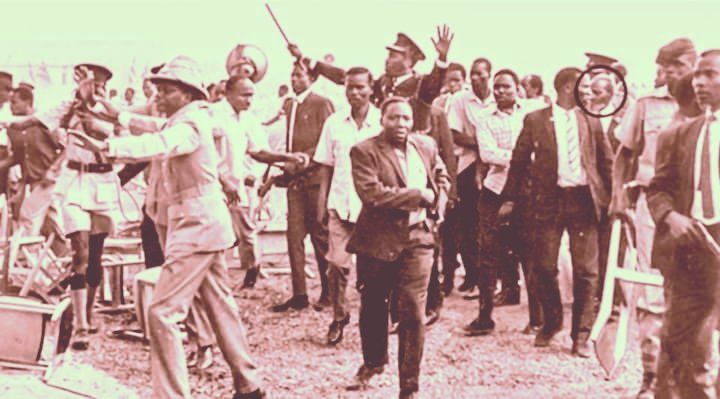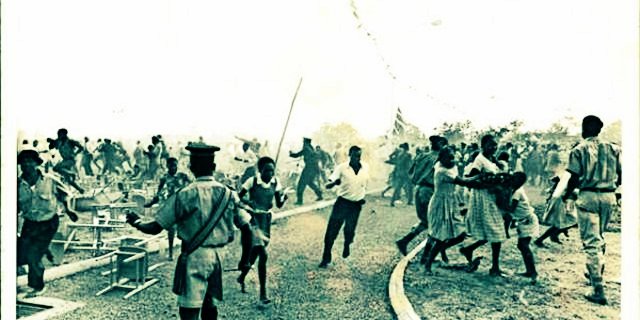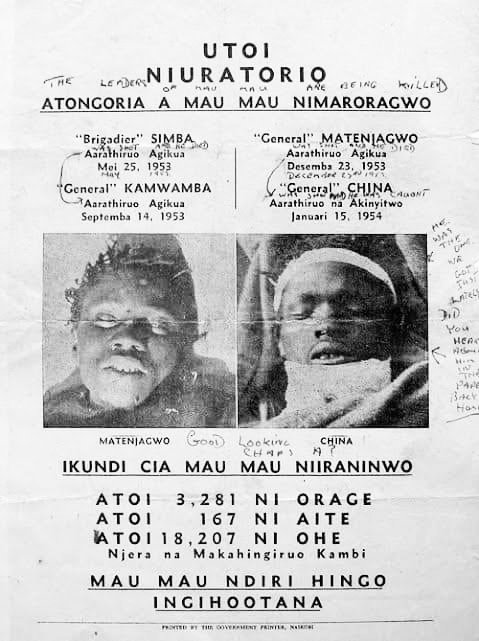
MAU MAU OATHS and their KILLINGS.
***thread***
At the height of the Emergency in colonial Kenya, those who refused to partake in the Mau Mau muma (oath) often met gruesome death in the hands of Mau Mau fighters.



***thread***
At the height of the Emergency in colonial Kenya, those who refused to partake in the Mau Mau muma (oath) often met gruesome death in the hands of Mau Mau fighters.




In his book, Histories Of The Hanged: Britain’s Dirty War In Kenya, author David Anderson describes various incidences in which police informers, African Christian converts and collaborators of the colonial government met their deaths.
One such Mau Mau victim was Joseph Kibunja.
One such Mau Mau victim was Joseph Kibunja.
On an ordinary night, that of 15th September 1952, Mau Mau gathered over 200 villagers, including Kibunja, at a farm in Rumuruti, Laikipia.
There was only one intention: to carry out a mass oathing ceremony.
There was only one intention: to carry out a mass oathing ceremony.
Those who declined to partake in the oath, such as Kibunja’s wife, were beaten into submission. However, Kibunja refused to take the oath, insisting that he was a man of God who had pledged allegiance to the church.
So as others took their oath inside a hut, Mau Mau leaders gradually tightened the noose of a rope around the neck of a defiant Kibunja. They hoped he would change his mind.
He didn’t.
His brain was slowly starved of oxygen until he died.
He didn’t.
His brain was slowly starved of oxygen until he died.
Outside, not far from the hut, a shallow grave was dug up under orders by the Mau Mau oath administrators. Kibunja’s remains were interred there.
A few days later, fearing authorities would discover the unmarked grave, Mau Mau members among farm labourers ordered that Kibunja’s remains be exhumed and reburied in nearby woods.
Citing eyewitness accounts, author Anderson describes how friends and neighbours of the deceased, were ordered, as a way to “demonstrate that they were not afraid to kill enemies of a Mau Mau”, to hack Kibunja’s rotting corpse to pieces with pangas.
Bizarrely, the Mau Mau also forced those present to touch the flesh of the deceased and touch their hands to the lips.
Kibunja’s body was retrieved days later after police were led by terrified villagers to this last gravesite.
Kibunja’s body was retrieved days later after police were led by terrified villagers to this last gravesite.
His killing and that of Mutuaro Onsomu, who was a foreman at a nearby settler’s farm, created a great deal of fear in Rumuruti.
It was only September of 1952. The killings had just begun.
It was only September of 1952. The killings had just begun.
A few weeks later, on 20th October 1952, in the wake of murders of dozens of people by Mau Mau, and the gripping assassination of colonial administrator Senior Chief Warûhiû, the colonial Government declared a State of Emergency in Kenya.
According to (British) official records, 11,503 Mau Mau, 32 whites and 1,189 Africans were killed during the Emergency.
However, author Maina wa Kinyatti is on record as having disputed this count.
However, author Maina wa Kinyatti is on record as having disputed this count.
“The contention by the British that 11,000 died is grossly erroneous. A conservative estimate is that at least 150,000 Kenyans lost their lives, 250,000 were maimed for life and 400,000 left homeless”, he wrote.
• • •
Missing some Tweet in this thread? You can try to
force a refresh













